Creating your own reading challenge for your kids is a sure way to take them from being infrequent readers to voracious bookworms.
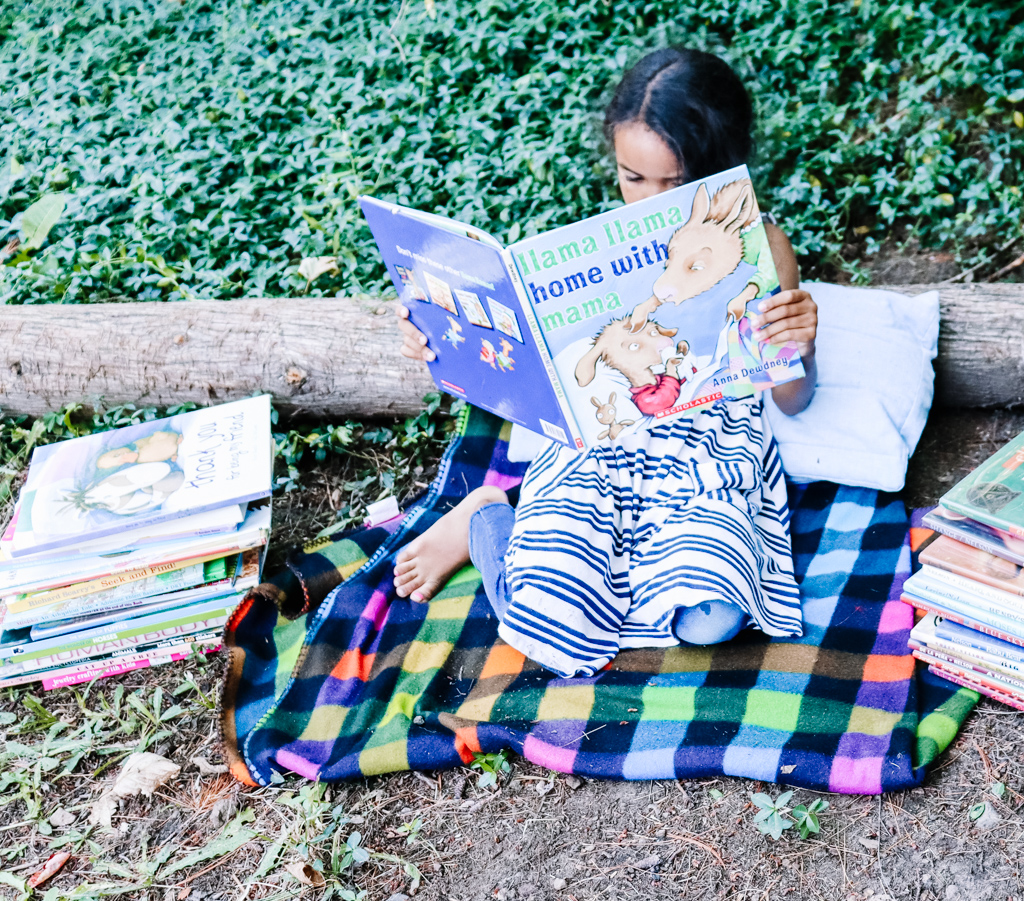
The movie Gifted Hands tells the story of Dr. Ben Carson, famous neurologist and former U.S Secretary of Housing and Urban Development. It is a heart-warming, rags to riches true story sure to motivate even the least confident. Dr. Carson grew up in Detroit as the younger of two sons of a divorced, illiterate woman who suffered from bouts of depression. Despite these difficult circumstances, his mother did something profound. She bans television in her home and creates a reading challenge for her sons. The challenge was simple, the boys had to read 2 books from the library per week and submit a written book report to her. His mother does eventually learn how to read, and her challenge proves successful. Dr. Carson develops a love for learning and attributes reading as key to his success.
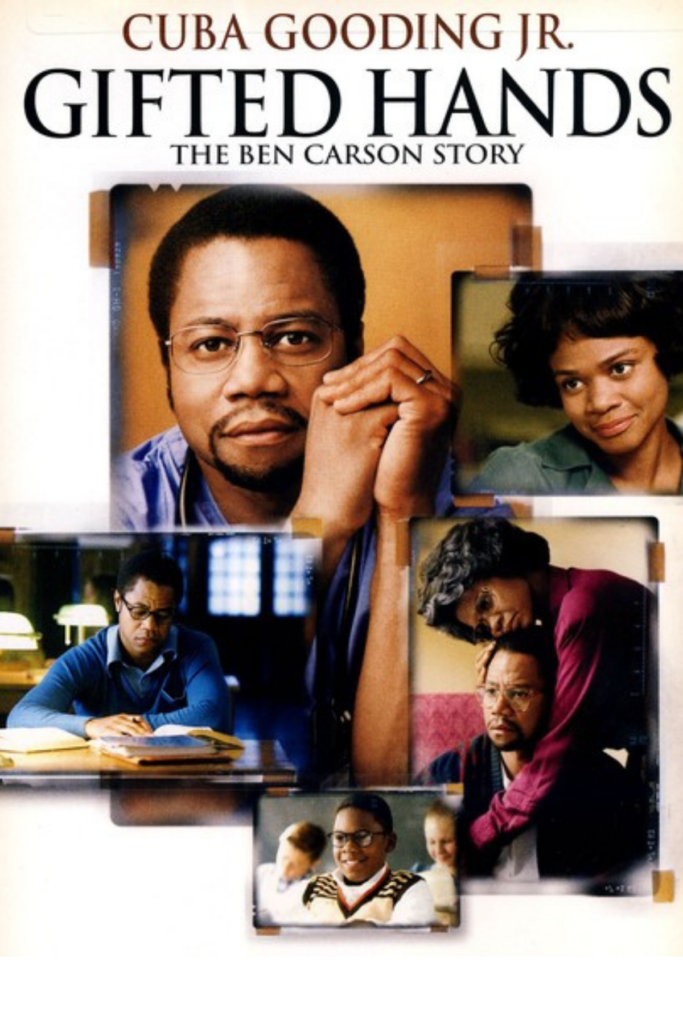
There are many things resolute parents can do to keep their children reading while at home. A language-rich home environment and parents who are unashamed voracious readers both go a long way in raising readers. Reading aloud cultivates the love for books that make the reading thing a lifelong thing. The former creates a reading culture and establishes the habit. The latter leaves an imprint on the mind and heart of the joy and positive experience of books.
And then there are challenges.
Benefits of a Reading Challenge
Challenging the young readers in your home will help instill confidence and motivate them to read even beyond their reading level. Challenges also help a child diversify their book experiences by experiencing other genres. Lastly, reading challenges encourage personal responsibility because the reader will need to say “no” to certain things in order to say “yes” to books.
There are many different ways to design a reading challenge. Your family culture, goals for your children, and your child’s reading interest and ability will determine what will work best for your family. As you read through these ideas, I would encourage you to plan on challenging yourself in the same way. Let your children see you saying “yes” to books and be sure to share your reading experiences with them. Have your reading challenge be a challenge for the entire family, get dad involved too. Offer some liberty in book choice perhaps giving your child 5 to choose from.
With a little creativity you can easily create a challenge that is suitable for your family’s current station in life. Below, I have compiled some ideas to get you on your way.
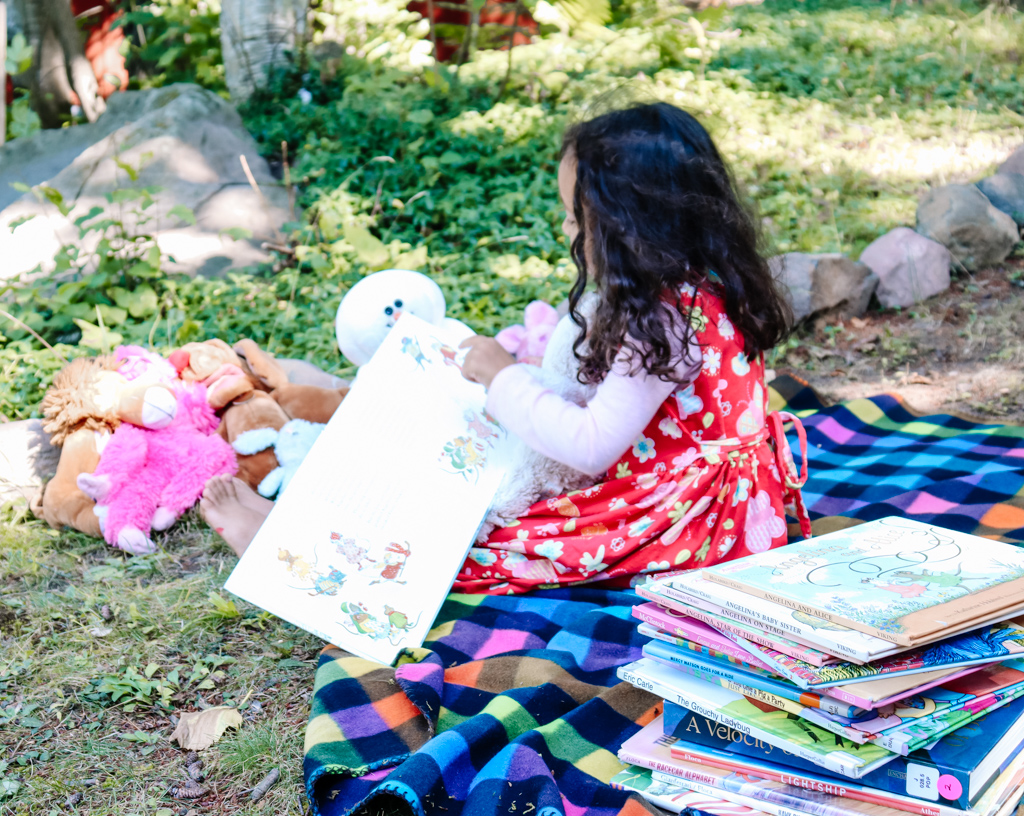
The Carson Challenge
This is my title for the way Dr. Carson’s mother challenged him in the movie. Require 2 books per week with a written report “due” by the end of the week.
Add On’s- the report can be read aloud to the family; the report can be illustrated rather than written; The report can be a comparison essay, which requires your child to compare the two books they’ve read.
*I am really big on being convinced to read something. The reports (whatever the form) shouldn’t be dreary and dull but exciting. Make me want to read it. Tell me of the characters, the plot, entice me by the wisdom has been gleaned. Critique the authors and illustrators. Make me want the book.
Time- Based Challenges
For a child who is already enthusiastic about reading and wouldn’t get anxious from the pressure of time you can use a time-based challenge. To create this challenge, you’ll use a time constraint and a number of books as your parameter. An example would be giving an older child 8 months to finish all of C.S Lewis 7 Chronicles of Narnia books. It could also be seasonal, completing all 8 of Laura Ingall Wilder’s Little House series during the spring and summer season, or Dicken’s A Christmas Carol from Dec 1-Dec 24th. Younger children could focus on beginner chapter books like Kate DiCamillo’s Deckawoo Drive series, completing the 6-book series in 3 months.
Doing a time-based reading challenge can also be helpful during the summer months to keep children in books year around. Have specific books only read in the summer, perhaps by a certain author or based around a specific topic. A time-based challenge should be set up to encourage a lot of reading in an unusually short time. It should feel like a challenge.
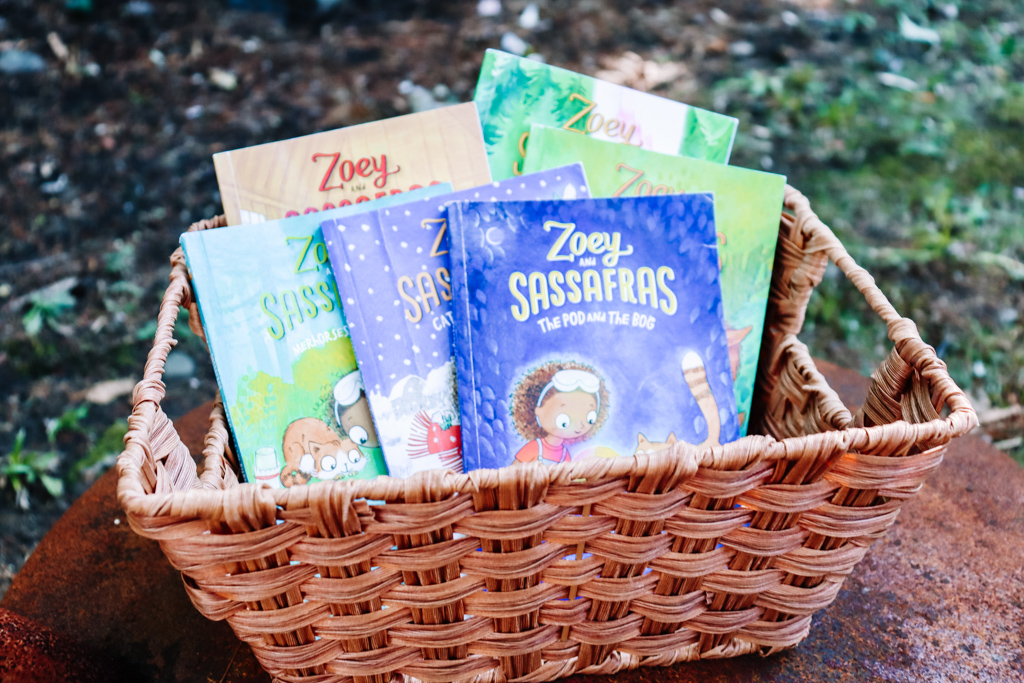
Series-Based Challenges
I’ve already mentioned a few well-known series above, but the list is endless. The good thing about series books is that when a child finds one that they like they can enjoy many more with the same flavor. I was late to the Mercy Watson game. I brought it home from the library simply because I saw a pig on it (my five-year-old loves pigs). It was love at first read and lo and behold Kate DiCamillo had many more Mercy Watson adventures to be enjoyed for those just beginning with chapter books. Strategically, the Deckawoo Drive series includes the same silly, witty characters but ups the reading level. When designing a series-based challenge the parameter is the series not time. The child finishes the challenge when the last page is turned on the last book.
Author-Based Challenges
Not all authors are created equal. An author-based challenge gives your child the opportunity to dive into the writing of one person. The challenge could include reading all of the works by an author or just a selected few. Roald Dahl’s books are an excellent example. All of his stories are stand alone, but he leaves his same witty mark on them all. Books by Avi contain more mature themes but would be worth a read for a child that can handle it. Chapter books are not the only option, include picture books in your challenges as well! You could focus on reading all of the books written by Brian Floca or Cynthia Rylant. The challenge is complete when the list has been exhausted.

Page-Based Challenges
For longer novels, such as the works of J.R.R Tolkien or Andrew Peterson’s Wingfeather Saga, you can create a challenge based on the number of pages read. Perhaps creating a chart that allows a little piece to move a square every time 60 pages are read, with rewards given at each 240-page mark. This kind of challenge helps an enthusiastic reader pace themselves in reading more difficult writings but gives motivation along the way.
Month-Based Reading Challenge
At the beginning of the school year, you and your child can select 12 books they are going to work on reading through the year. Selecting together is important because its motivates. Make it a goal to read 1 book per month. The challenge ends at the end of the 12th month
What About Rewards?
Working hard for a reward is not a bad thing, it is biblical and should be encouraged. Hard work gets rewarded, period. These challenges should be rewarded according to their level of difficulty. For the young enthusiastic reader willing to take on Tolkien’s works in a page-based challenge, when that last page is turned, don’t hesitate to go all out. Perhaps a night downtown at a fancy hotel with a parent, or a winter trip to a ski hill with a beautiful chalet. Go to a pottery shop and learn to make pottery together or sit on a quiet beach and sketch with wooden easels. Skip the dollar store bouncy balls, or trips to five below for things that will break or be forgotten within a year. Design a reward that creates a memory with a beloved family member. Do something unusual, not typical…something very special.
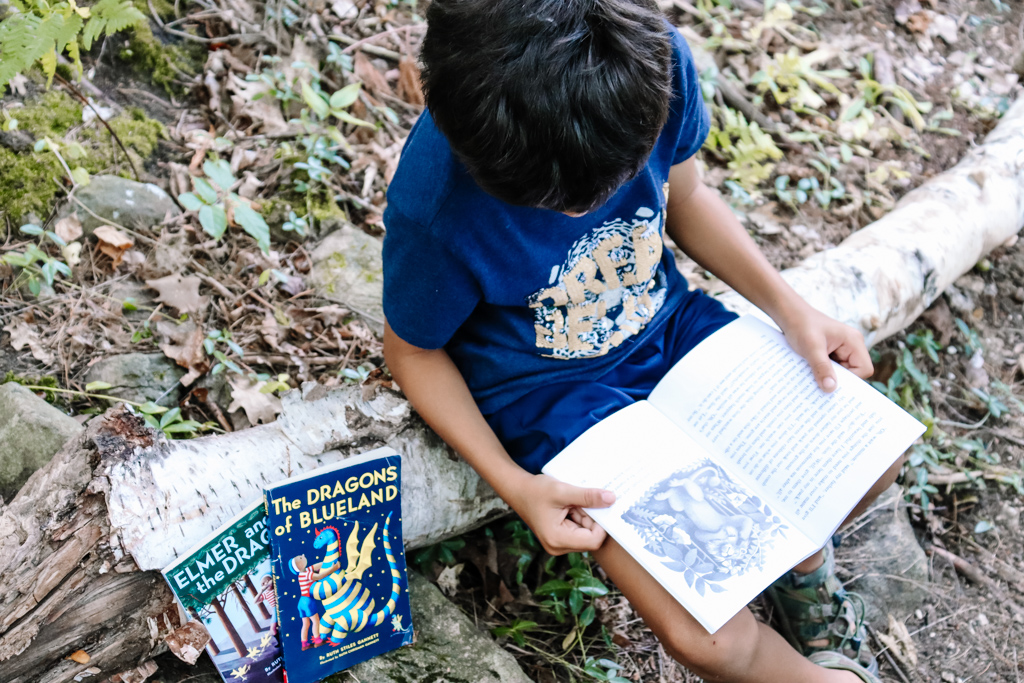
Assignments After The Challenge Is Complete?
Dr. Carson’s mother required a written report each week although she couldn’t read well. Though illiterate, she knew the importance of following up her challenge with a written assignment that would only reinforce her son’s important literacy gains. I believe a post challenge assignment of some kind is important, I might even say it is crucial. It does not take away from the enjoyment of the story, and it doesn’t need to be something that is graded in red pen with every mistake highlighted.
It should be designed to require your child to think through what they have learned. Make it so that your child has to process what the author wrote and the overall message. You could have them create a flyer meant to entice others to read the story. Or you could have them compare and contrast the different stories in a series. Your child could design their own front cover for each story with a short summary under each cover. They could also create a magazine where each story in a series in summarized, compared, and critiqued. You could have them focus on the characters and describe the ways in which they would or would not want to imitate character.
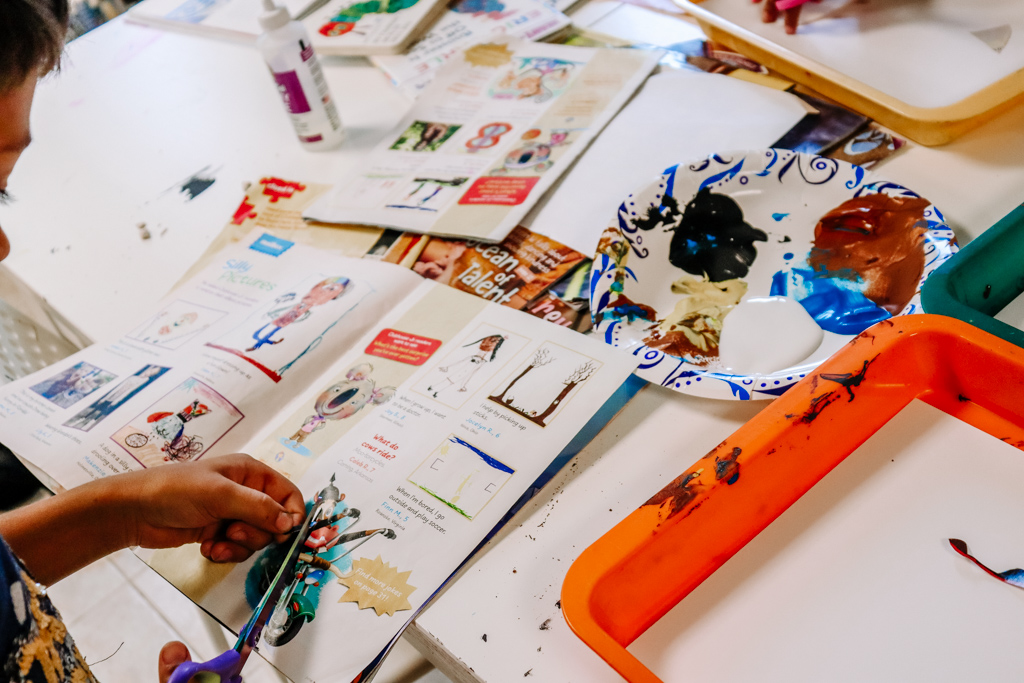
Assignments During The Reading?
Though not entirely necessary if you want to get the most out of a challenge remember the role of vocabulary. Your child’s vocabulary is going to take great leap because they will get exposed to many new words. You can encourage your child to write down all the words they do not know and then pick 5 to define and share with the family. Or take 1 unknown word a day, define it, and seek to use it in a sentence that day.
If you have multiple children doing a challenge have them write down all new and foreign words and compare the list at the end of the challenge. You can make it a competition and see who can effectively use the most foreign words in a sentence at the end of the challenge. By putting a focus on vocabulary at the outset, you encourage your child to embrace (and even hope for) large words that they don’t understand. Large words become friends, not enemies that make them want to put the book down and give up. It keeps them going. Then all of a sudden, your 6-year-old is describing the tadpoles in the lake as “scurrying” instead of “swimming fast” (true story in my house).

Challenge Yourself
As I mentioned before you should consider doing a challenge right alongside your children. Let them see you reading as voraciously as they are as well. Share your big word discoveries with them. By making it a family endeavor the challenge is more likely to be successful. Books teach your children endurance, an important lesson to learn young – when you start something you should intend to finish it.
Happy Reading!